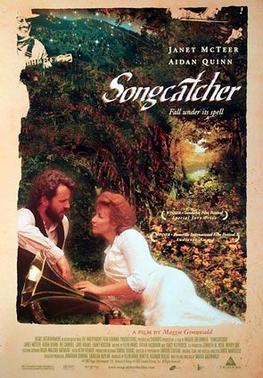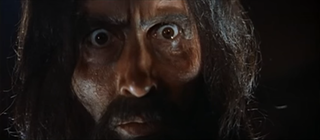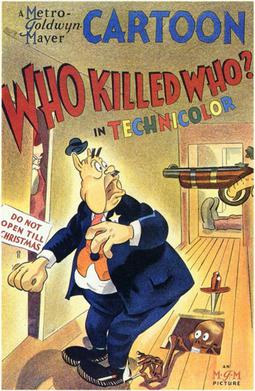
Knyaz Felix Felixovich Yusupov, Count Sumarokov-Elston was a Russian aristocrat from the House of Yusupov who is best known for participating in the assassination of Grigori Rasputin and for marrying Princess Irina Alexandrovna, a niece of Emperor Nicholas II.

A story within a story, also referred to as an embedded narrative, is a literary device in which a character within a story becomes the narrator of a second story. Multiple layers of stories within stories are sometimes called nested stories. A play may have a brief play within it, such as in Shakespeare's play Hamlet; a film may show the characters watching a short film; or a novel may contain a short story within the novel. A story within a story can be used in all types of narration including poems, and songs.
Hustler Magazine, Inc. v. Falwell, 485 U.S. 46 (1988), is a landmark decision by the Supreme Court of the United States in which the Court held that parodies of public figures, even those intending to cause emotional distress, are protected by the First and Fourteenth Amendments to the U.S. Constitution.

A parody advertisement is a fictional advertisement for a non-existent product, either done within another advertisement for an actual product, or done simply as parody of advertisements—used either as a way of ridiculing or drawing negative attention towards a real advertisement or such an advertisement's subject, or as a comedic device, such as in a comedy skit or sketch.

Songcatcher is a 2000 American drama film directed by Maggie Greenwald. It is about a musicologist researching and collecting Appalachian folk music in the mountains of western North Carolina. Although Songcatcher is a fictional film, it is loosely based on the work of Olive Dame Campbell, founder of the John C. Campbell Folk School in Brasstown, North Carolina, and that of the English folk song collector Cecil Sharp, portrayed at the end of the film as professor Cyrus Whittle. The film grossed $3 million in limited theatrical release in the United States, which was generally considered as a respectable result for an arthouse film release in 2001.
Living Dead, also informally known as Of The Dead is a blanket term for the loosely connected horror franchise that originated from the 1968 film Night of the Living Dead. The film, written by George A. Romero and John A. Russo, primarily focuses on a group of people gathering at a farmhouse to survive from an onslaught of zombies in rural Pennsylvania. It is known to have inspired the modern interpretation of zombies as reanimated human corpses that feast on the flesh and/or brains of the living.

Power Without Glory is a 1950 historical novel written by Australian author Frank Hardy, following the life and ambitions of John West, a politician born into a working-class family who rises to prominence in Australian federal politics.

A fictional brand is a non-existing brand used in artistic or entertainment productions, such as paintings, books, comics, movies, TV serials, and music. The fictional brand may be designed to imitate, satirize or differentiate itself from a real corporate brand. Such a device may be required where real corporations are unwilling to license their brand names for use in the fictional work, particularly where the work holds the product in a negative light.
Beatrice Ruby Mathews Sparks was a Mormon youth counselor, author, and serial con artist, known primarily for producing books purporting to be the "real diaries" of troubled teenagers. The books deal with topical issues such as drug abuse, Satanism, teenage pregnancy, and AIDS, and are presented as cautionary tales. Although Sparks presented herself as merely the discoverer and editor of the diaries, records at the U.S. Copyright Office list her as the sole author for all but two of them, indicating that the books were fabricated and fictional.

The life of the notorious Russian mystic Grigori Rasputin has been the subject of a variety of media since his death in 1916.

Who Killed Who? is a 1943 Metro-Goldwyn-Mayer film noir animated short directed by Tex Avery. The cartoon is a parody of whodunit stories and employs many clichés of the genre for humor; for example, the score is performed not by the MGM orchestra but by a solo organ, imitating the style of many radio dramas of the era.
The fortnightly British satirical magazine Private Eye has long had a reputation for using euphemistic and irreverent substitute names and titles for people, groups and organisations and has coined a number of expressions to describe sex, drugs, alcohol and other aspects of human activity. Over the years these names and expressions have become in-jokes, used frequently in the magazine without explanation. Some have passed into general usage and can be found in other media and everyday conversation.
Negative checking is a process by which producers of film, television and radio programs will attempt to ensure that the names of fictional characters cannot be confused with real life people. For instance, during the making of the television series Inspector Morse, the producers of the show checked with local police to ensure that the names of characters used in the program could not be confused with individuals in any real life cases. The primary reason for this practice is to prevent any possible legal action for libel which could result. The term is sometimes shortened in program credits to Neg Check.

The Huggetts Abroad is a 1949 British comedy drama film directed by Ken Annakin and starring Jack Warner, Kathleen Harrison, Petula Clark and Susan Shaw. It was written by Gerard Bryant and Ted Willis from a story by Keith Campbell.

Rasputin and the Empress is a 1932 American pre-Code film directed by Richard Boleslawski and written by Charles MacArthur. Produced by Metro-Goldwyn-Mayer (MGM), the film is set in Imperial Russia and stars the Barrymore siblings. It is the only film in which all three siblings appear together.
Fake IPL Player was a cricket blog started by Anupam Mukerjee on 18 April 2009. The blog's appearance coincided with the start of the 2009 edition of the Indian Premier League (IPL) cricket tournament.

Phil Spector is a 2013 American biographical drama television film written and directed by David Mamet. The film is based on the murder trials of record producer, songwriter and musician Phil Spector and premiered on HBO on March 24, 2013. It stars Al Pacino as Phil Spector, Helen Mirren as defense attorney Linda Kenney Baden, and Jeffrey Tambor as defense attorney Bruce Cutler. It focuses primarily on the relationship between Spector and Linda Kenney Baden, his defense attorney in 2007 during the first of his two murder trials for the 2003 death of Lana Clarkson in his California mansion, and is billed as "an exploration of the client–attorney relationship" between Spector and Kenney Baden.
World News Daily Report (WNDR) was a satirical fake news website purporting to be an American Jewish Zionist newspaper based in Tel Aviv and dedicated to covering biblical archeology news and other mysteries around the globe.

Bagani (transl. warrior) is a 2018 Philippine television drama fantasy series broadcast by ABS-CBN. Directed by Richard I. Arellano, Lester S. Pimentel and Raz de la Torre, it stars Enrique Gil, Liza Soberano, Matteo Guidicelli, Makisig Morales, and Zaijian Jaranilla. It aired on the network's Primetime Bida line up and worldwide on TFC from March 5 to August 17, 2018, replacing La Luna Sangre and was replaced by Ngayon at Kailanman.












